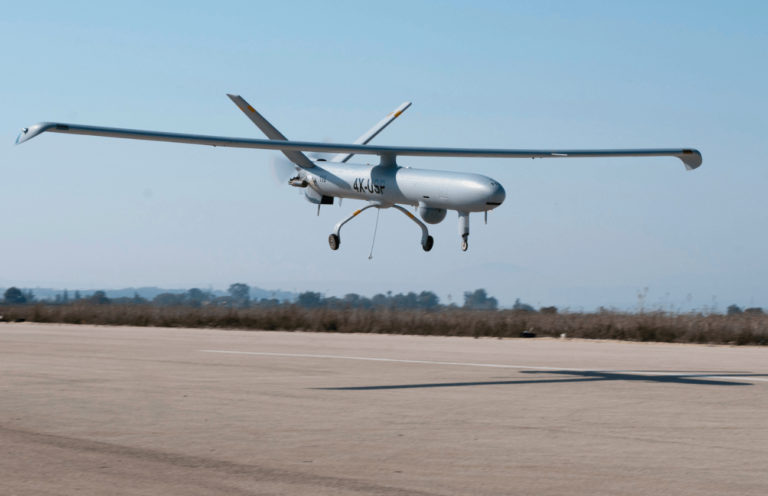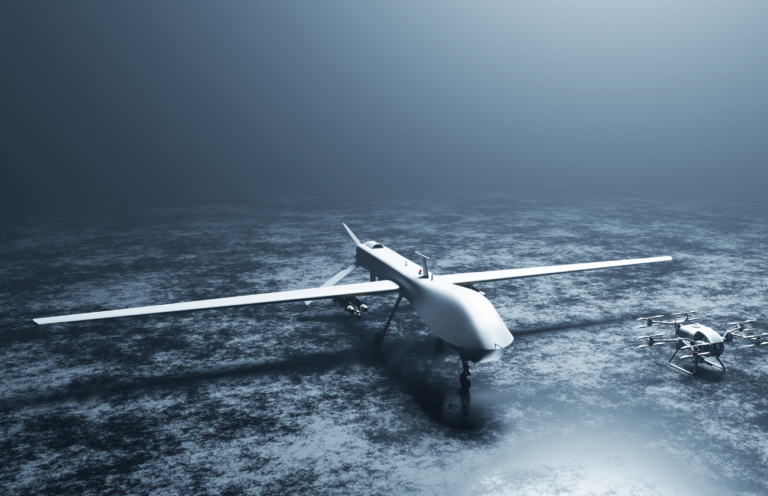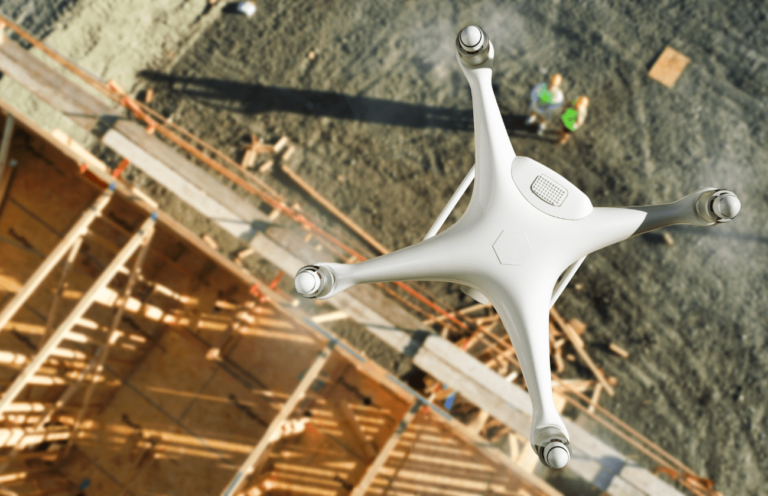Are you familiar with the regulations as they apply to the use of drones in the UK and how they relate to the use of AI? This overview provides a look at those regulations.
Drones have become incredibly popular, over 500,000 people using them recreationally in the United Kingdom. To ensure safety and avoid interference, the UK has implemented a number of regulations that must be followed.
What are the regulations in the UK that you need to be aware of? Read on to find out the most important UK drone regulations that you need to know.
Categories of Drone Flying
In the UK, drone regulations are based on the risk of the flight, including where you fly, the proximity to other people, and the size and weight of your drone. There are three categories of drone flying in the UK:
- Open Category: For flights with lower risk, like operating a small drone over a park, an operating approval is not required. However, it is imperative to adhere to the drone code while flying in this category. By doing so, you can ensure both safety and compliance.
- Specific Category: For flights with higher risk factors, like operating a heavier drone in urban areas, obtaining an operating approval is required.
- Certified Category: This is applicable to larger drones that must adhere to safety certifications similar to those of aircraft.
Registering a Drone
Before even recreational drone users can fly their drone, they must register the drone within the UK. This registration system helps to ensure safety and avoid interference by allowing authorities to keep track of which drones are in the air at any given time.
When you buy a drone, you amust obtain a flyer ID and an operator ID. These are two forms of identification needed to legally verify that you are allowed to fly a drone in the UK.
It is also worth noting that in the UK, you have to be 18 years old to fly a drone.
The second factor comes down to the drone itself. Depending on how much it weighs, you may have to make an extra declaration with this registration.
In the United Kingdom, this is required if your drone weighs more than 250 grams.even

Avoiding Aircraft
While registering a drone can allow someone to legally fly one, that does not mean that they can fly the drone wherever they want.
One of the most basic things that you need to avoid is other aircraft. A safe distance is at least one kilometre from other aircraft.
It is a criminal offence to have a drone interfere with the flight. This applies whether somebody did this intentionally or not.
Height Limit
When purchasing a drone, it is crucial to be aware of the altitude restrictions for flying a drone. In the United Kingdom, this limit is 400 feet (or 122 metres).
On top of this, you cannot fly a drone more than 500 metres from you horizontally. As a result, someone that buys a drone needs to be aware of how high 400 feet actually is.
Residential Areas
When people fly drones, they need to be very mindful of the area they are flying the drone in. While the law above regarding staying under 400 feet is a good place to start, there are sometimes other regulations to follow too.
When it comes to residential areas, you must keep your drone away from objects that are already in the vicinity including pedestrians, cars and drivers on the roads.
UK law states that you cannot fly a drone within 50 metres of people or cars.
Along with people and cars, drone flyers need to avoid flying drones too close to buildings.
Operating Drone Provisions Extension
You should also be aware that whilst the Civil Aviation Authority has certain regulations in place for the United Kingdom for the next few years, those regulations have been agreed upon until the beginning of 2026.
The goal of future provisions is bring them more in line with the European Aviation Safety Agency (EASA).
Regulations for AI-enabled Drones in the UK
The above are some of the most notable drone laws in the UK although currently, there are no specific regulations for AI-enabled drones in the UK.
Drone operators are obligated to adhere to relevant regulations, including the EU’s Basic Regulation (or retained legislation in the UK), as well as domestic criminal and tort law in the country where the drone is being operated.
It is imperative to ensure compliance with these regulations whilst utilising AI to maintain lawful and responsible drone usage.
The use of drones, especially autonomous drones, raises a number of legal issues that are regulated in a set of rules derived from national, regional, and international law.
This can make the commercial operation of drones challenging for those without access to specialist legal advice or knowledge.

AI Military Technology With Drones
A question you may have is how AI technology is involved with drones. The United Kingdom is working with the United States and Australia to explore this subject.
The UK collaborated with these nations in a military experiment involving a drone swarm and their joint efforts aimed to achieve a comprehensive evaluation and exploration of this technology.
These countries had to train AI drones to hit certain targets and when they wanted to change these targets, they had to retrain the AI drones from scratch.
The military used UAVs (unmanned aerial vehicles) to help assist in testing these models and the Royal Marines even used drones to try to get new supplies to units that they had on the ground. This test was done back in July of 2021.
While these trials are still in the early stages, the United Kingdom seems optimistic that drones are going to play a big part in the country’s future.
However, they do not just plan to use AI technology with drones for the military.

AI Drones for Other Industries
As a whole, the United Kingdom has invested over £200 million in the drone industry. They not only want to see what AI technology can do to improve drones but also see just how big of an impact drones can make on other industries.
What other industries may you see these drones in?
- You can use AI drones in construction. These can be used to collect data on the construction progress as well as make sure that safety standards are being followed throughout the project.
- Aerial videography and photography. In the tourism and hospitality industry, this can be a great way to promote resorts, hotels, restaurants, bars, outdoor events and more. If you want to take this a step further, some estate agents even use these to promote houses they are trying to sell.
- Power transmission line tracking: Drones equipped with AI can assist in monitoring and inspecting power transmission lines, identifying potential issues and improving maintenance.
- Farming: AI-enabled drones can monitor crops, detect pests, diseases, and nutrient deficiencies, and help farmers make informed decisions for improved crop management.
- Manufacturing and industrial: Drones equipped with AI can be used for inventory management, quality control, and monitoring operations in manufacturing and industrial settings.
- Smart cities: AI drones can assist in urban planning, infrastructure monitoring, traffic management, and public safety in smart city initiatives.
- Security and surveillance: AI drones can enhance security measures by providing real-time monitoring, surveillance, and threat detection in various environments.
- Disaster relief: AI drones can aid in disaster response and recovery efforts by providing situational awareness, search and rescue operations, and damage assessment.
AI technology in drones can help you recognise objects and images from the air therefore you can use this as a great tracker for targets as well as data collection.
These are just a few examples of the industries where AI-enabled drones are being utilised or have the potential to be used.
The versatility and capabilities of AI drones make them valuable tools for improving efficiency, productivity and safety across various sectors.

Learn More About Drone Laws in the UK
It’s important to note that the regulations for drone flying in the UK are primarily based on factors such as where you fly, the proximity to other people and the size and weight of your drone.
Therefore, while there are no specific regulations for AI-enabled drones, operators must still comply with the general regulations and requirements for drone flying in the UK, as well as the domestic criminal and tort law in the country where the drone is being operated.
UK Government and National Security
In the future, drones could become a bigger part of national security.
The UK government has actively funded research and development in AI technologies for drones, underscoring the immense potential they hold.
With the ability to track specific targets for military applications, it becomes crucial to consider legislation in high-risk and complex environments.
In addition, with the rise of autonomous drones, it’s important to determine how much responsibility is given to pilots and operators versus the AI technology.
Conclusion
As drone use continues to grow in popularity, industry professionals must stay up-to-date on the latest laws and regulations related to their particular applications and be aware of any changes that may arise.
By doing so, they will be able to ensure their operations are compliant and safe for everyone involved.
For legal advice or guidance on this matter, contact our legal advisors at Proelium Law or Message us here with your questions.








